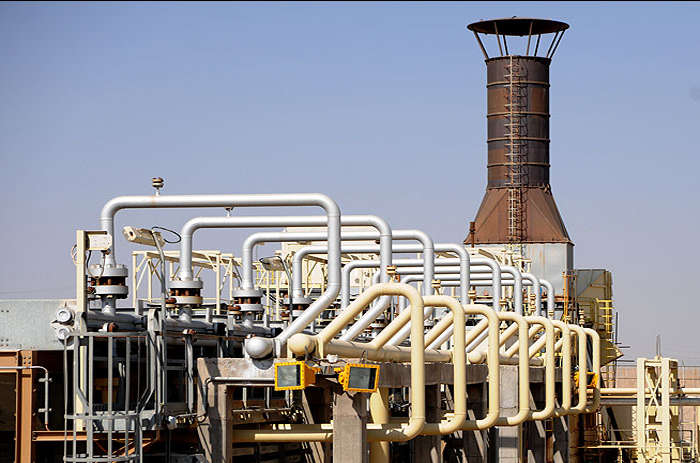Development of ANG technology is currently targeted by some leading companies in the world. Iran is also focusing on ANG as it is home to the third highest number of gas vehicles in the world and the second largest consumer of CNG at the international level. So far, Iranian petroleum industry research institutes and universities have taken effective measures for acquiring the ANG technology.
Hamid Qasemi, CNG director at the National Iranian Oil Products Distribution Company (NIOPDC), told “Iran Petroleum” that more than 2,435 CNG stations were operational all over Iran.
"A double increase in the payment of private owners of CNG stations has encouraged investors to consider launching such stations," he said. Iranian CNG officials say the rate of return on investment in CNG stations is more than 25%, which will be recoverable in three years in big cities. Furthermore, 116 more CNG stations are under construction, 71 of which by private investment.
Qasemi said most CNG stations are operating traditionally with 220 Bar pressure.
He added that NIOPDC planned to build small and medium-sized CNG stations in order to facilitate public access.
To that end, he said, NIOPDC has started cooperation with Tehran Municipality in the construction of 25 CNG stations. "In case this project proves to be successful 1,000 stations will be built in Iran in two years," he added.
Qasemi said that as far as the manufacturing of gas vehicles were concerned in Iran three issues had been studied; gas-powered engine, CNG tank and cars' ability to carry CNG tanks.
Studies are currently focused on ANG, which Adsorbed natural gas (ANG) technology is the use of a highly porous adsorbent material to densely store natural gas molecules at low pressures (900 psi and below). Under controlled depressurization, these molecules release and exit the storage system in response to the demand of the vehicle's engine.
ANG is also being tested for other methane storage applications, including CNG fueling station storage, virtual pipelines, and fugitive/ wellhead methane capture systems. Other significant opportunities for ANG include home heating and cooking applications in developing countries and in Southeast Asia.
Application of ANG technology would bring about a revolution in Iran's CNG industry.
NIOPDC, in cooperation with the Research Institute of Petroleum Industry (RIPI) and Sharif University of Technology, has developed nanocarbon storage tanks which are being tested on vehicles. A problem with this technology is that gas impurities may be entrapped in the tank's honeycomb holes to gradually reduce the tank's capacity. This technology was developed in 2016, but has yet to be expanded.
"The ANG technology in nanocarbon sector has reached the stage of mass production in the world, but it is still in the stage of lab test in nanoceramics," said Qasemi.
"By applying this technology there would be no need for modifying the engine system of vehicles. Therefore, car manufacturers face no restrictions. The only difference would be the form of tank and its fittings in the vehicle," he added.
Qasemi said there is a stage of gas compression in the CNG stations' compressors. "That is while the ANG technology requires compression only in the first stage, which would significantly save on the power and energy consumption," he added.
He said that if gas supply is generalized, ANG technology would totally replace gasoline and Iran could export its gasoline. That would at least save Iran IRR 1,600 billion, he said.
Qasemi said that ANG technology needed $5.4 billion in investment over seven years in order to prove successful.
"Such investment would return more than $80 billion through saving gasoline consumption. The government has to provide necessary support to the private sector and investors," he said.
Qasemi said ANG-based synthesis would reduce pressure from 200 Bar to 50 Bar, dispensing with the need to use expensive compressors at CNG stations. He said that booster pumps could replace compressors and owing to the extension of gas pipeline across Iran it would be possible to build small-sized CNG stations everywhere in cities.
"In case the lab-scale ANG project turns out to be successful we will sign agreements with major foreign owners of such technology," Qasemi said.
He said at Iran's car manufacturing industry, CNG tanks are the most secure part of cars "because the gas cylinders have a diameter less than one centimeter and are highly resistant to impacts." He added that of 57 CNG-related accidents in one year, only one person lost his life.
"That is while the CNG share of national fuel mix is 20%. Meantime, if ANG technology is used, high pressure would not be in the gas tanks anymore and the likelihood of explosion will fall to zero," said Qasemi.
Iran is currently the second largest consumer of CNG after Pakistan and the technology used in cars dates back to 15 years ago. "Therefore, we strongly need state-of-the-art technology in this industry," said Qasemi.
In a bid to increase the share of gas in the fuel mix of its road transportation fleet, Iran intends to invest quickly in gas-powered car manufacturing, he added.
Gas currently makes up 20% of light vehicles' fuel mix, which is expected to reach 35% in three steps that would take four years.
Developed countries are currently implementing energy market plan in their CNG industry. Under this plan, household gas consumption would be reduced so that the saved gas would be sold to power plants.
Recently, the generalities of this plan were approved at Iran's parliament and subsequently communicated to the government for execution.
Courtesy of Iran Petroleum


Your Comment